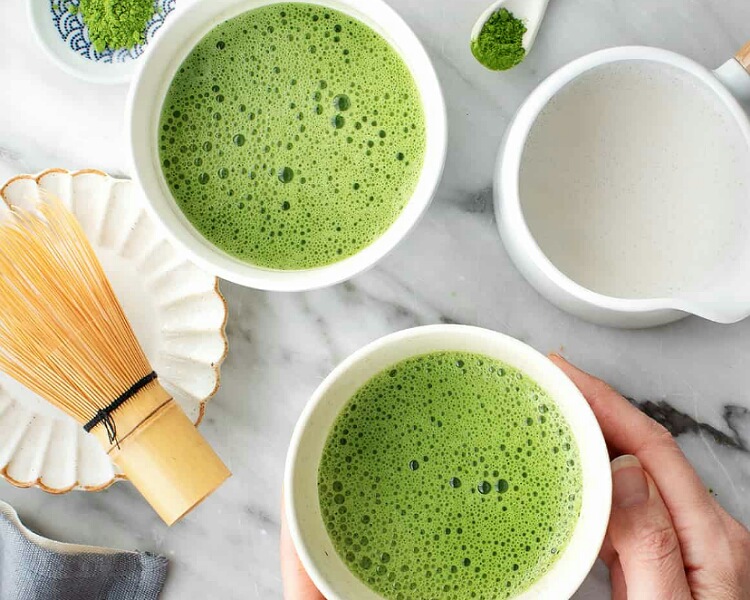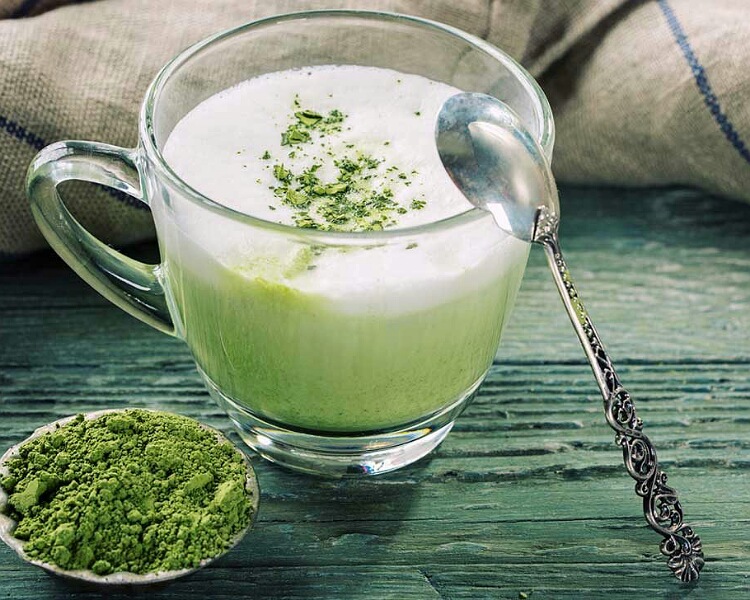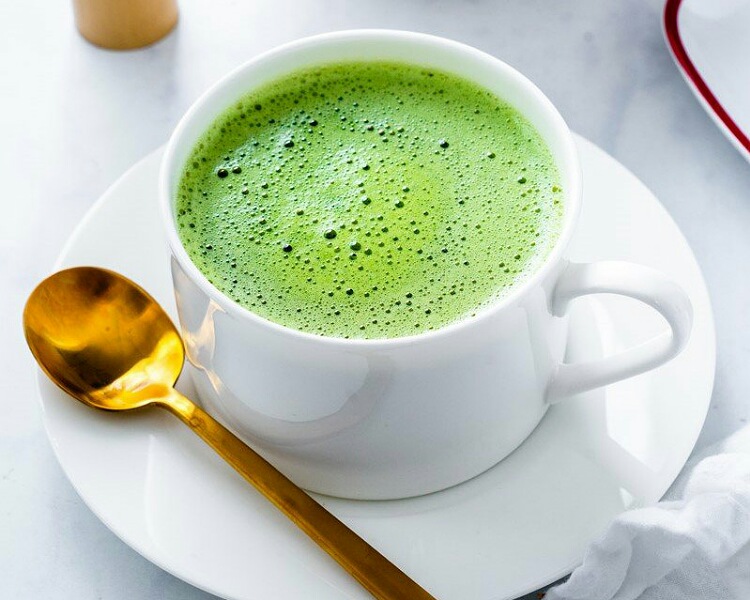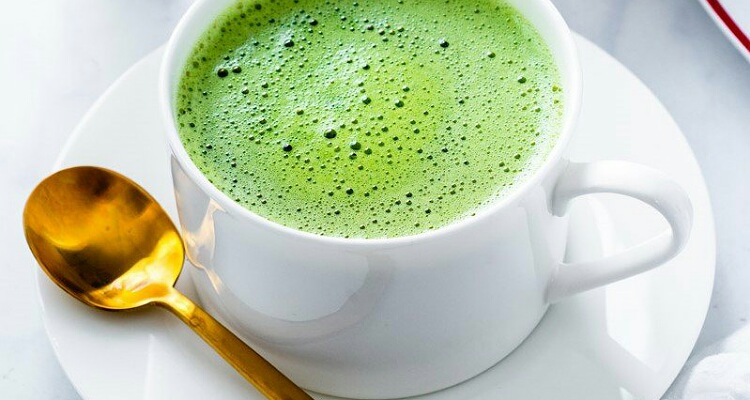Matcha tea has shown an upward trend in terms of sales and popularity. One can see it everywhere from coffee shops to restaurants to supermarkets and grocery stores.
Matcha shots, lattes, and desserts are grabbing a lot of attention. What is matcha tea? What are its health benefits and side effects?
Matcha tea
Matcha is another type of tea. The leaves of this tea come from the same tea plant, Camellia sinensis. But it is grown differently and also has a different nutritional profile.
Though the tree is the same, the way the farmers harvest it is different. 20-30 days before plucking the leaves, the farmers cover the plants to avoid direct sunlight.
This step increases the chlorophyll content of the leaves. Therefore, the tea leaves get a darker shade, and also the amino acid content of these leaves rises.

And after the tea leaves are plucked, their stem and veins are removed. The remaining tea parts are ground into a fine powder. This is called matcha.
This has far greater caffeine and antioxidants in it compared to green tea. This bestows the tea with benefits that get passed to the drinker.
Benefits of matcha
Antioxidants-rich matcha powder
Matcha has a lot of antioxidants in it. It is rich in catechins which is a type of antioxidant. This mops up the damaging free radicals and prevents chronic diseases. When matcha powder is added to hot water, these antioxidants dissolve in it and provide benefits to the consumer.
This is more than what one gets when the green tea leaves are steeped in water. Some of these catechins are 137 times more in matcha as compared in green tea.
Liver protection
The liver is a vital body organ that metabolizes food, drugs, and toxins and flushes waste out of the body. Certain studies have shown the protective action of matcha on the liver.
Diabetic rats were fed matcha for 16 weeks and the research team found that it prevented kidney and liver damage. Green tea also has a protective action on the liver. But matcha surpasses it in this aspect too.

Brain function
Matcha has some components that are good for brain function. A small-scale study revealed that matcha tea or bars caused an improvement in attention, memory, and reaction time of those who took it.
It helps older people in cognition. This is partly due to the caffeine in it. But it also has L-theanine that modifies caffeine action and promotes alertness and prevents the crash that comes after some time of consuming caffeinated drinks. It boosts the good effects and lessens the side effects of caffeine.
Anti-cancer action
Matcha has catechins, and epigallocatechin-3-gallate (EGCG) in larger amounts. This has a role in reducing the risk of cancer. Hence, matcha has a more marked anti-cancer action compared to green tea.
Heart health
Green tea lowers bad cholesterol and promotes good heart health. On the same grounds, matcha which has all the nutrients found in green tea can protect the heart.

Weight loss
Green tea assists in weight loss. Similarly, matcha would have a similar effect. But there have been no separate studies done on the role of matcha in weight loss.
Taste and easiness
Matcha is easier to prepare and also the tea is delicious. One can also reap the benefits of this tea by adding powder to puddings, desserts, or smoothies.
Read more: Pakistani pink tea: ingredients and health benefits
Thus matcha is beneficial for health and is tasty. But in large amounts, it can lead to liver problems or lead excessive brain stimulation. So enjoy it in moderation and add that extra flavor to your drinks and food with it.
